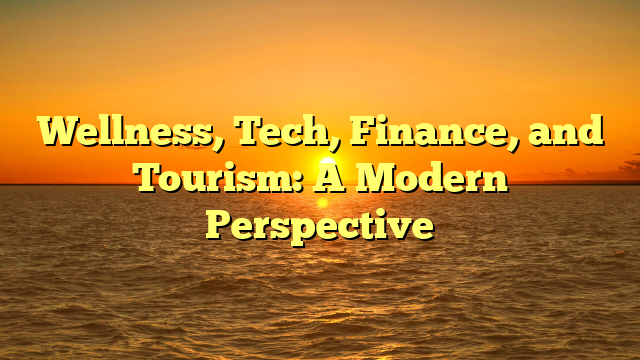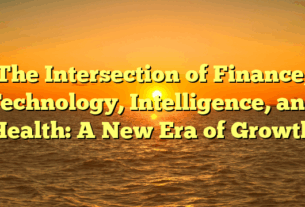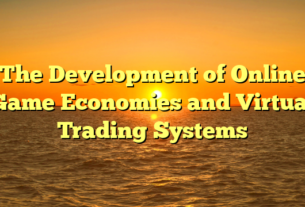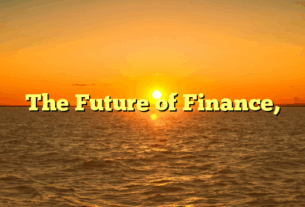In today’s rapidly changing world, the intersection of health, modern tech, finance, and global exploration is shaping how we live. These four sectors are not only growing independently but also influencing each other in unprecedented ways.
Physical and Mental Health
Staying healthy has become more complex and also more accessible thanks to modern advances. From wearable fitness trackers to personalized nutrition apps, people are now empowered to monitor and improve their health daily.
Devices such as smartwatches provide real-time data on heart rate, encouraging users to live healthier. Meanwhile, telemedicine platforms have revolutionized healthcare access, allowing patients to consult doctors from the comfort of their own homes.
Moreover, emotional well-being is gaining the spotlight. With the rise of meditation apps and AI therapists, handling anxiety is becoming more accessible.
The Tech Takeover
Digital transformation is at the center of global progress. It touches every aspect of life—from how we communicate to how we work and shop. slot777 toward AI, blockchain, and automation is driving the world into a new era.
Mobile devices, once luxury items, are now essential tools. Cloud computing allows businesses to operate remotely, while AI and machine learning streamline operations in industries like health and finance.
One major development is the use of blockchain in financial transparency. This decentralized system prevents fraud and is being implemented across banks and government agencies alike.
Modern Money Management
Personal and global finance is evolving fast. With digital currency, decentralized finance (DeFi), and robo-advisors, people are gaining more control over their financial futures.
Apps like YNAB help individuals manage budgets, set financial goals, and track spending in real time. Meanwhile, investing has become more accessible through platforms like Robinhood and eToro, even for those without a background in finance.
The rise of cryptocurrency, especially Bitcoin and Ethereum, has reshaped traditional banking systems. Many institutions are now studying blockchain to stay ahead.
Moreover, financial literacy is being prioritized. Schools and online platforms now offer free courses to teach people about budgeting, investing, and understanding credit.
Post-Pandemic Tourism
The travel industry is undergoing a massive transformation, driven by technology, environmental awareness, and changing consumer preferences.
Modern travelers want more than just sightseeing—they seek connection. Digital nomadism, powered by remote work, has led people to explore the world while earning a living online.
Apps like Airbnb and Couchsurfing have revolutionized accommodation, while Google Maps and TripAdvisor simplify planning. Eco-tourism is also booming as travelers become more conscious about sustainability and responsible travel.
Post-pandemic, the industry has embraced health protocols, offering peace of mind for globetrotters. Vaccination passports and health screening apps are now part of many travel routines.
Where It All Connects
Interestingly, these four areas—health, technology, finance, and travel—are becoming increasingly interconnected. For example:
Health data collected from wearables can now be integrated into insurance policies.
Travelers can pay globally using crypto wallets or contactless payment systems.
Telehealth and remote work allow people to maintain wellness and income while living abroad.
Financial apps offer travel budgeting features, while travel apps now include health safety tools.
This convergence is creating a seamless lifestyle where convenience, efficiency, and personalization are at the center.
Future Outlook
As innovation continues to drive growth, the future promises even more integration:
Health: AI-powered diagnostics, DNA-based meal plans, and virtual reality fitness.
Tech: Smart cities, 6G connectivity, and brain-computer interfaces.
Finance: Central Bank Digital Currencies (CBDCs), smart contracts, and automated taxation.
Travel: Space tourism, AI-powered tour guides, and immersive travel planning in virtual environments.
However, challenges remain. Digital fatigue, income inequality, and climate change must be addressed as we move forward. Responsible innovation, ethical tech practices, and inclusive policies will play a crucial role in ensuring a balanced evolution.
Conclusion
In conclusion, health, technology, finance, and global mobility are not only vital areas of life but also deeply connected. Understanding their intersections can help us make better decisions, live fuller lives, and adapt to the ever-changing world.
As individuals, embracing these changes with awareness and curiosity is key. As societies, we must build systems that support innovation while ensuring fairness and well-being for all.



